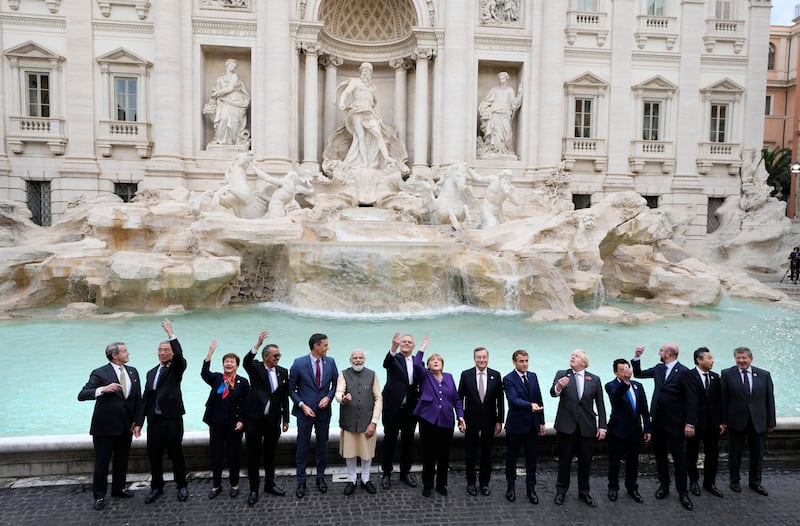Gee whiz, that G20 just met again.
After two weeks of negotiations, leaders from around the globe, gathered in Glasgow for the United Nations Conference on Climate Change, announced an agreement. Critics immediately pounced, complaining the accord amounts to diplomatic good intentions, not guaranteed action.
The U.N. gathering immediately followed a G20 meeting, held in Rome, of leaders from the world’s largest economies. That confab concluded on Oct. 31, likewise with a commitment to good goals regarding climate.
Who cares about a gathering of government big shots who dwell in a world removed from the average person?
The answer is you should care, and so should we all, for several central reasons.
Today, actions taken by G20 officials have profound lasting impacts on the majority of the population of the world. National finance ministries manage international policy machinery, which has proven to be remarkably effective.
That translates into a better, more secure life for most people. Many have lost money and lost jobs because of automation and other dislocations of rapid industrial change. People are more likely to regain economic ground, and recover lost income sooner, because of this relatively stable underlying international foundation.
There are also national and international security dimensions to the G20, and other global and regional economic institutions. Great Britain and the U.S. announced the farsighted goal of creating the United Nations early in World War II to forestall yet another global armed conflict.
Likewise, the initial prime incentive for economic integration in Europe was to deter Germany from launching war. This has been successful to a remarkable degree.
The G20 began in 1999, spurred by the Asia financial crisis of 1997. Rapid response led by the United States mobilized public and private capital to relieve nearly disastrous financial pressures on Asian economies. U.S. Federal Reserve Chairman Alan Greenspan and Treasury Secretary Robert Rubin deserve credit for working effectively with President Bill Clinton.
Moreover, not all Asian economies were hard hit. The relatively stable economies of China and Japan also helped recovery.
In 2010, G20 meetings took place in Gyeongju and then Seoul, South Korea. The selection of this nation aptly, and appropriately, symbolized the exceptional economic development of their powerhouse economy — and stable political democracy — during the years following the devastating Korean War of 1950 to 1953.
Japan was a participant in the initial, predecessor G7 organization of economically advanced nations. The successor G20 has developed a wider arena to include China, along with Brazil, India and other rapidly industrializing large economies of the world.
The fact that, worldwide, very poor people are becoming prosperous is good news for everyone. They represent new competitors, but also potential new consumers of our products, and investment partners. Wars are on balance less likely.
President Barack Obama shrewdly picked Pittsburgh as site for the fall 2009 G20 summit. In the 1980s, that city symbolized economic decline, domestic steel manufacturing faded and unemployment approached 20%. Sustained high-tech investment has turned that around.
At the 2009 summit, Bill Gates of Microsoft dedicated a Carnegie-Mellon University computer science complex. Apple, Disney, Google and Intel are other investors in the city. The U.S. leads in technology.
Terrible 20th century experiences demonstrate that protectionism is self-defeating and nationalism is dangerous.
Environment-friendly industries and investment are expanding. The U.N. and G20 provide frameworks for improving climate prospects. Ultimately, we all benefit.
Learn More: Ban Ki-moon “Resolved”
Arthur I. Cyr is the Clausen Distinguished Professor at Carthage College and author of “After the Cold War” (NYU and Palgrave/Macmillan). Contact acyr@carthage.edu


